Marcus Bleasdale, Großbritannien
Demokratische Republik Kongo: Der Preis des Fortschritts
Wenn der englische Fotograf Marcus Bleasdale über die Demokratische Republik Kongo spricht, kann er nur mühsam seinen Zorn unterdrücken. Seit Ende 1999 berichtet er mit der Kamera aus diesem Land: über die Bürgerkriege, die vermutlich fünf Millionen Menschen das Leben kosteten, die Armut und den wirtschaftlichen Niedergang.
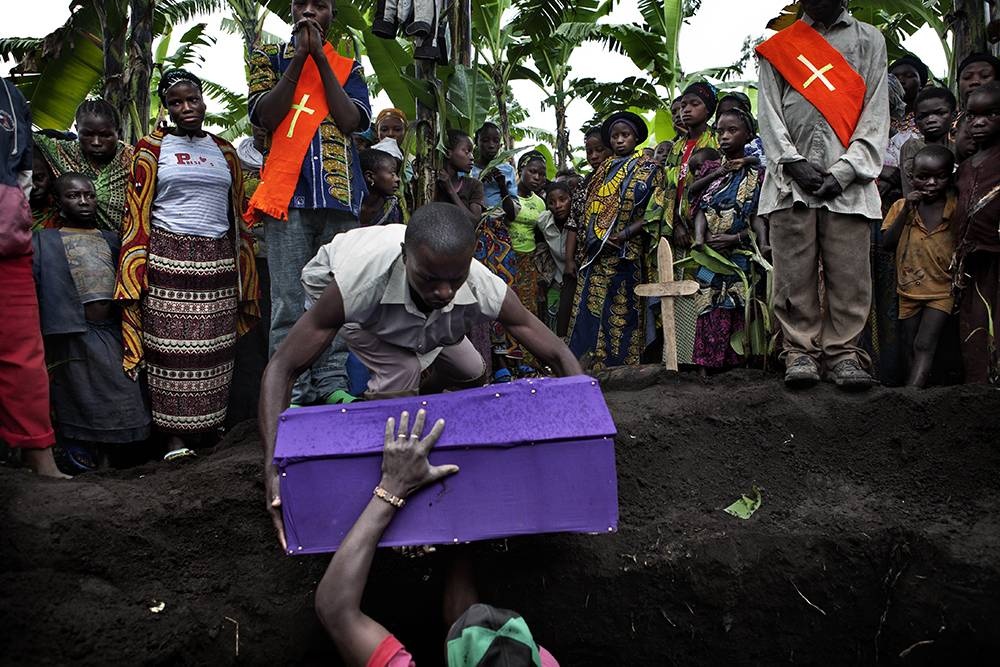
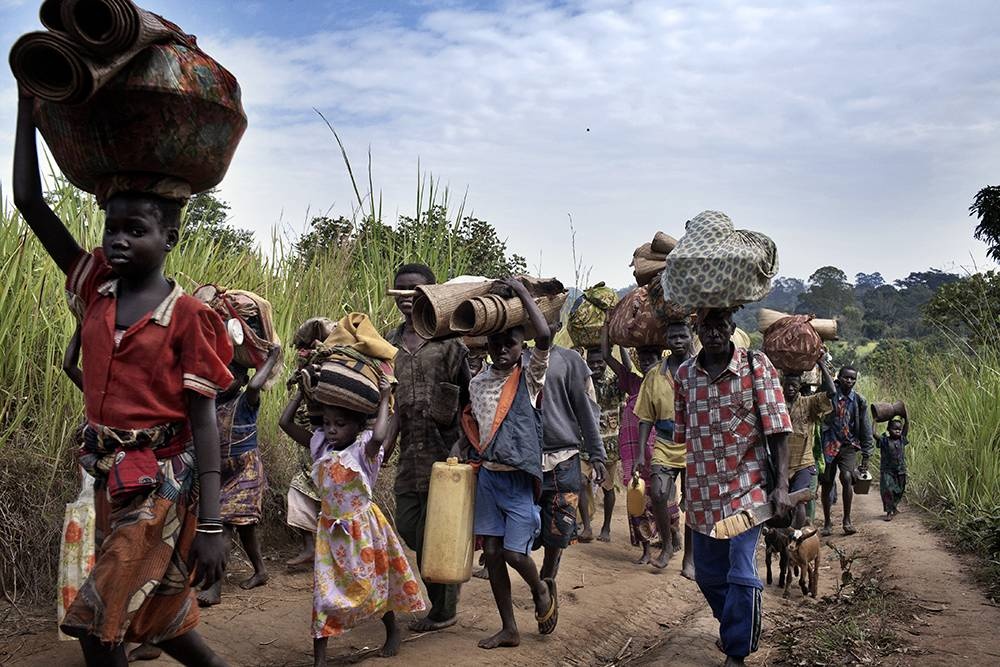
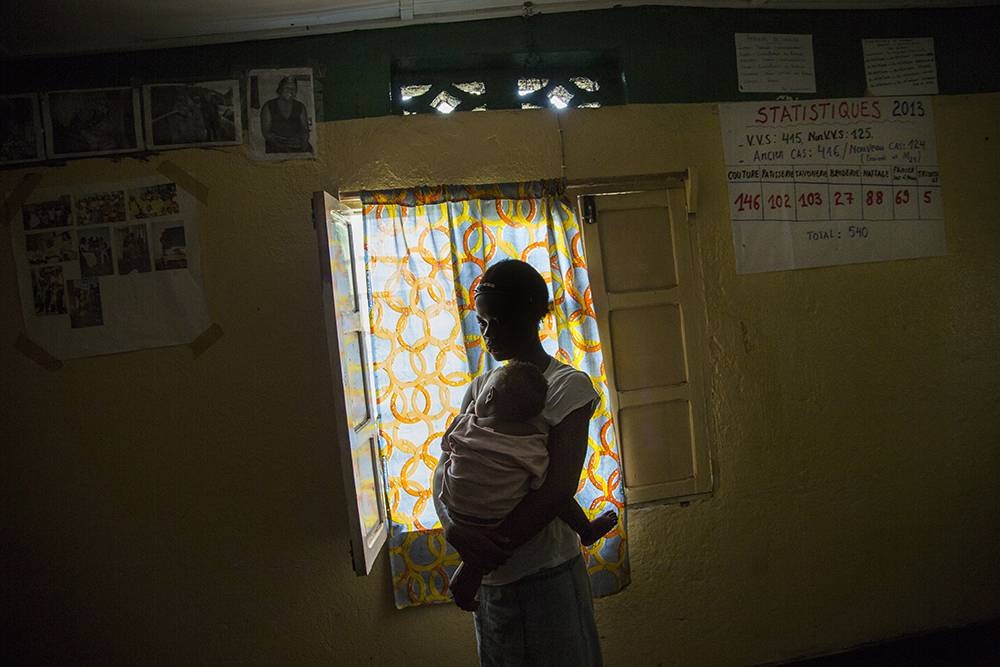
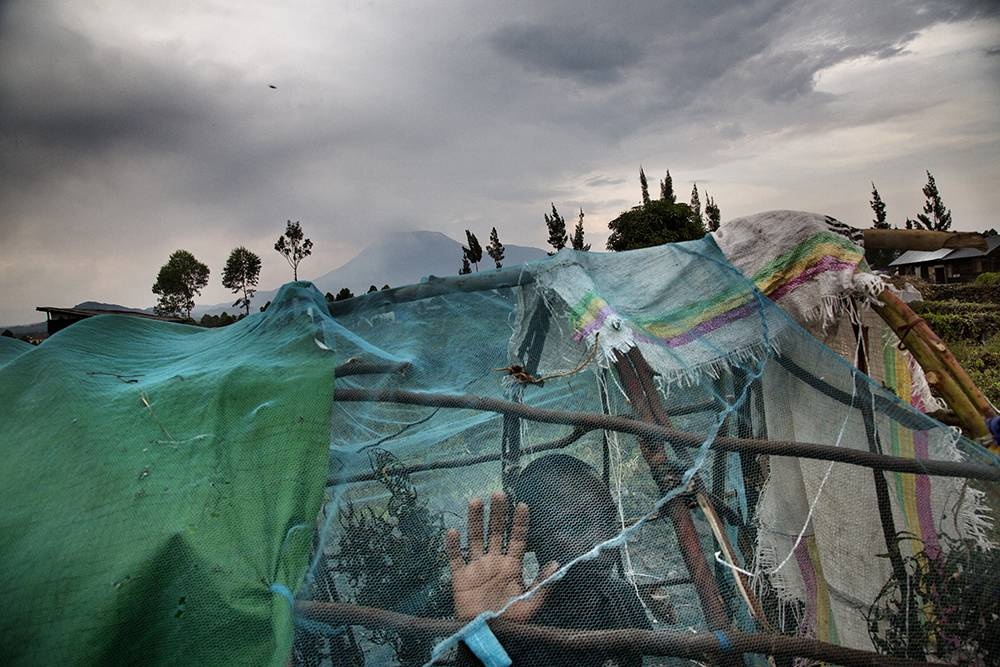
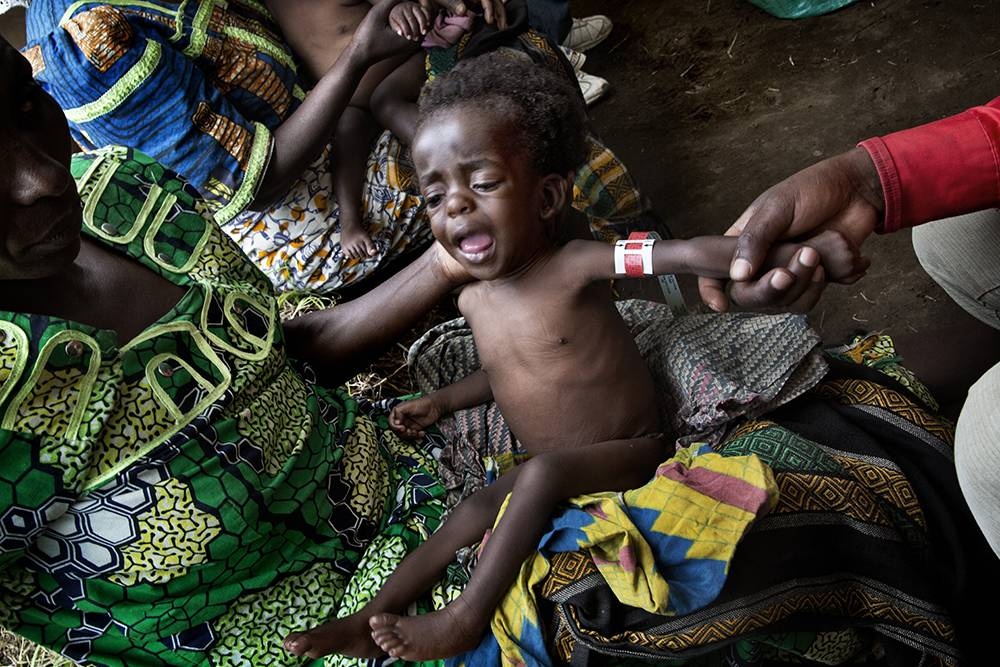
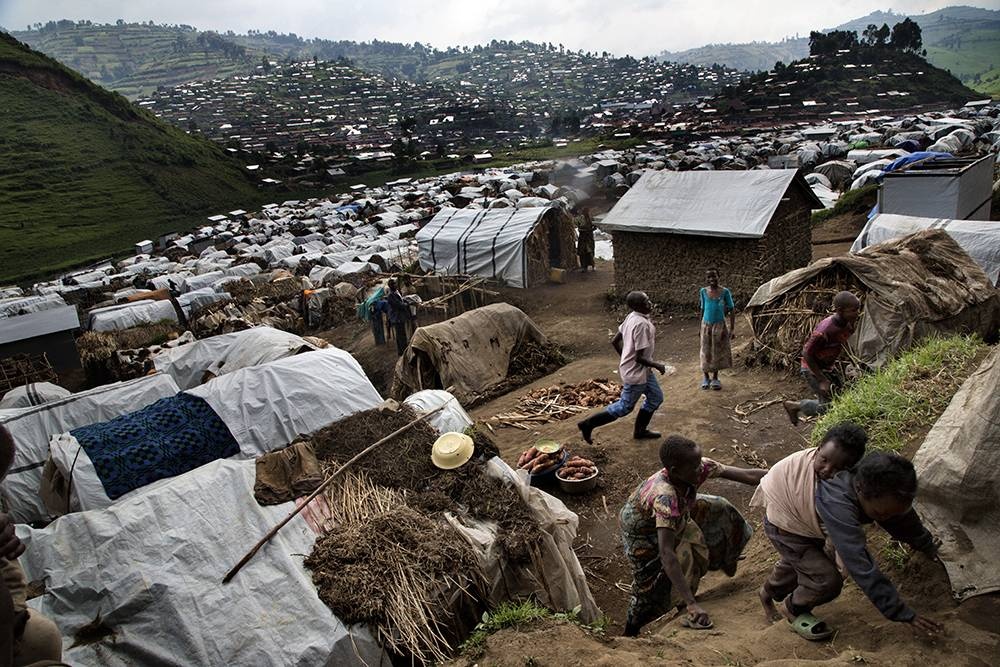
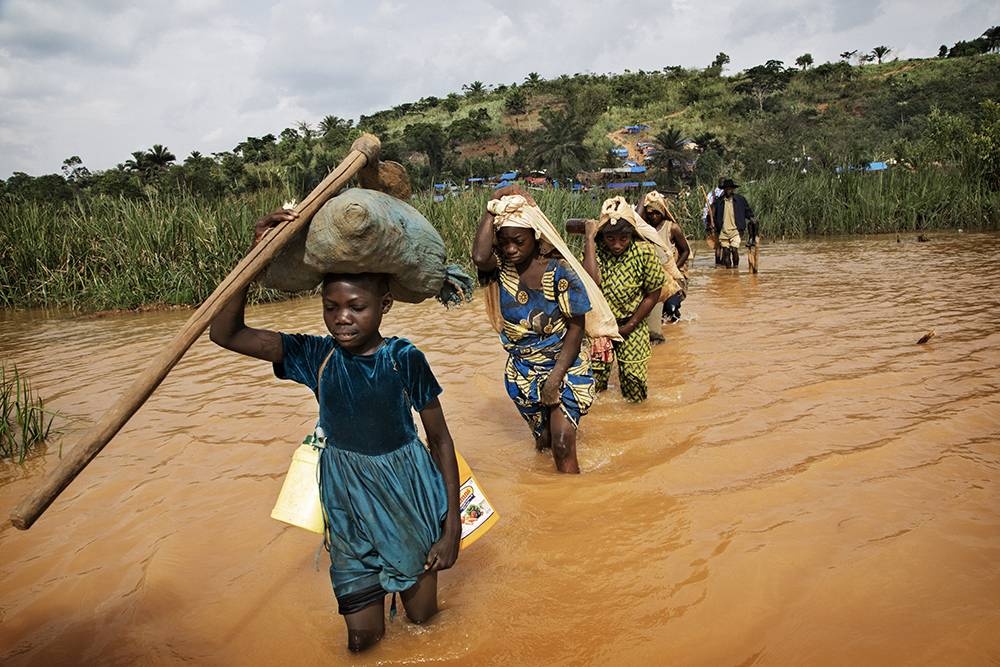
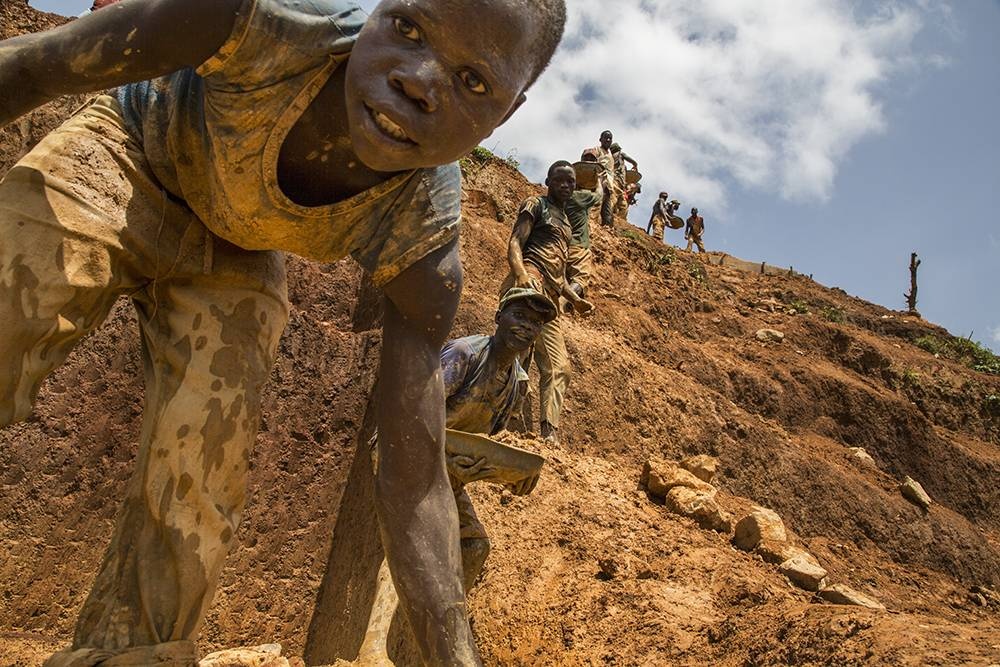
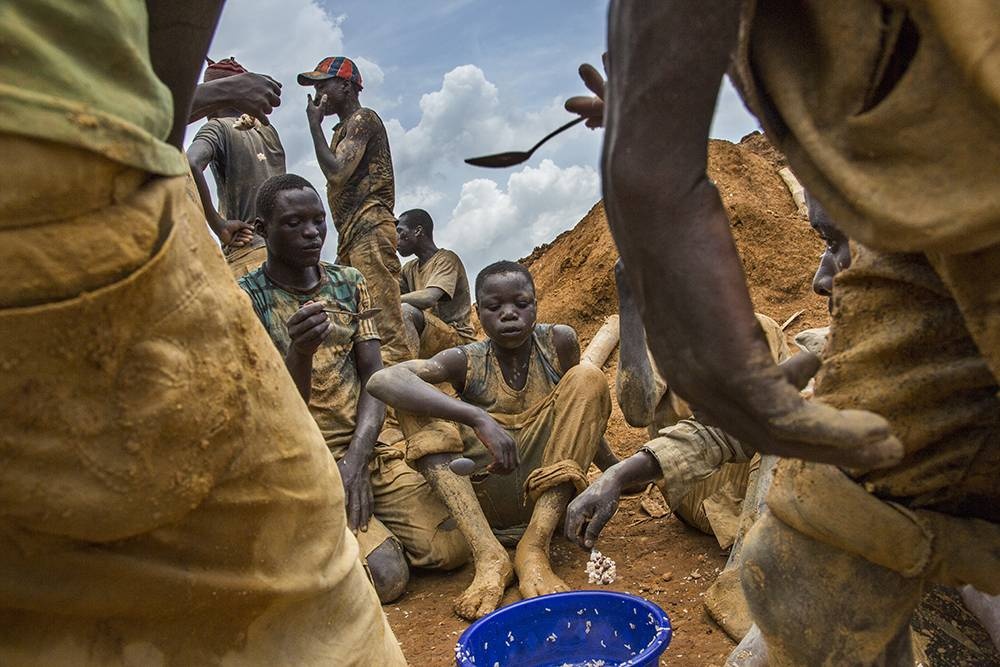
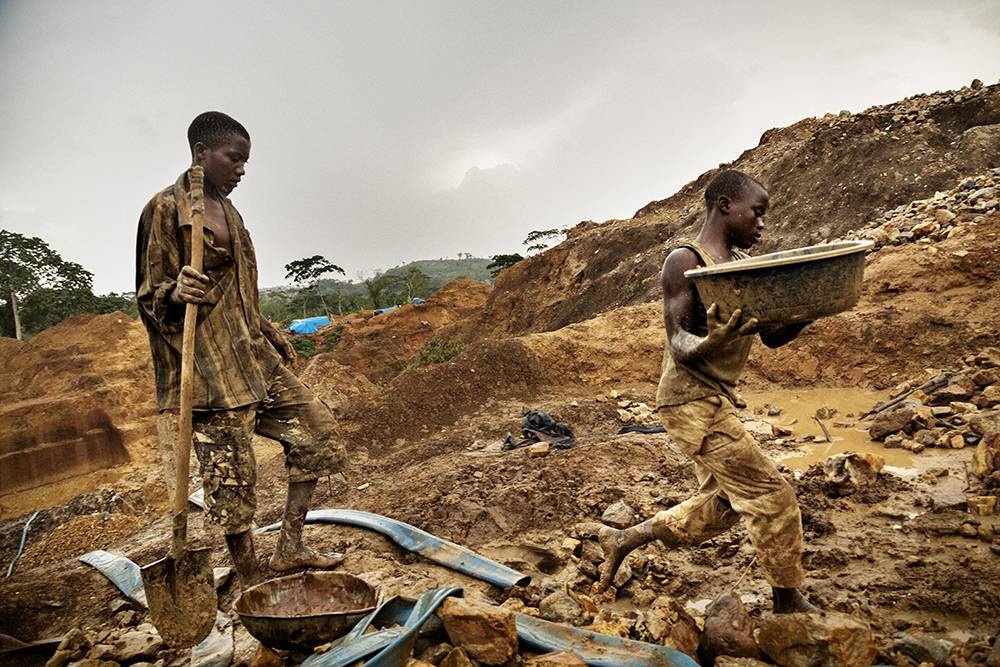
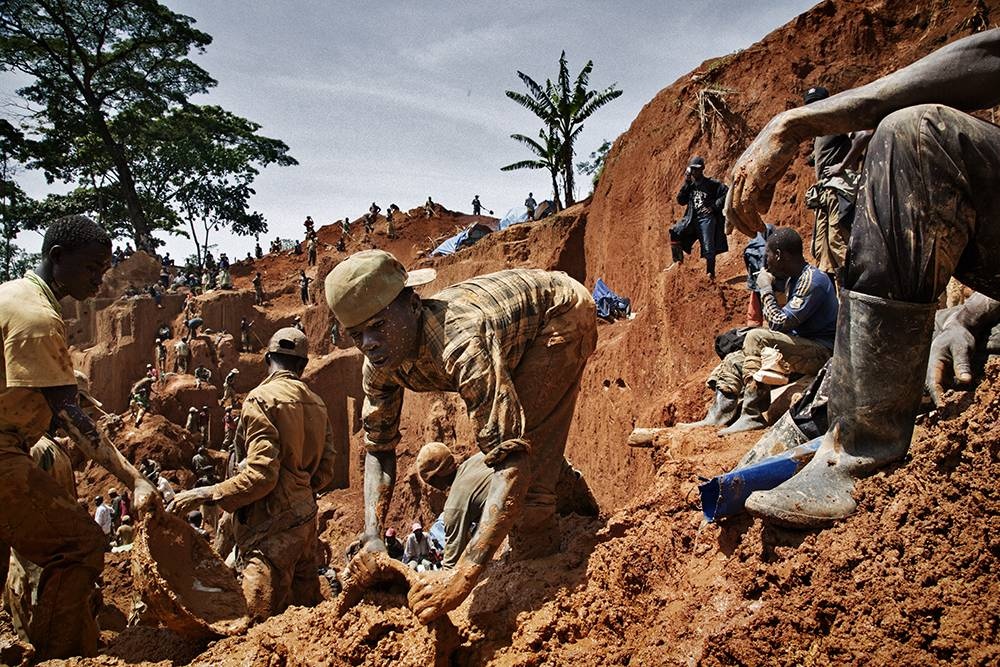
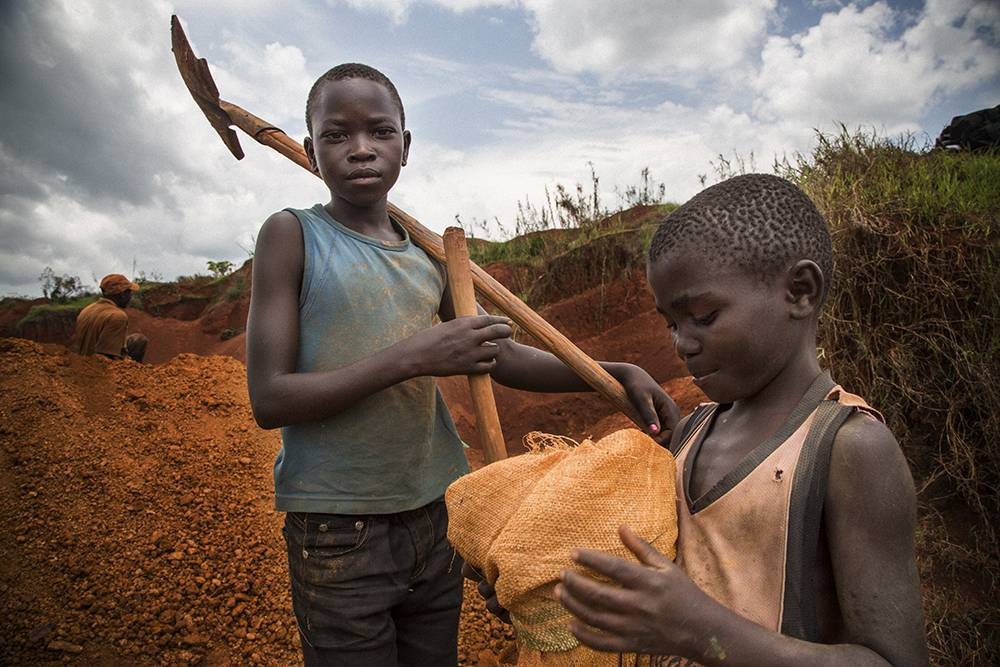
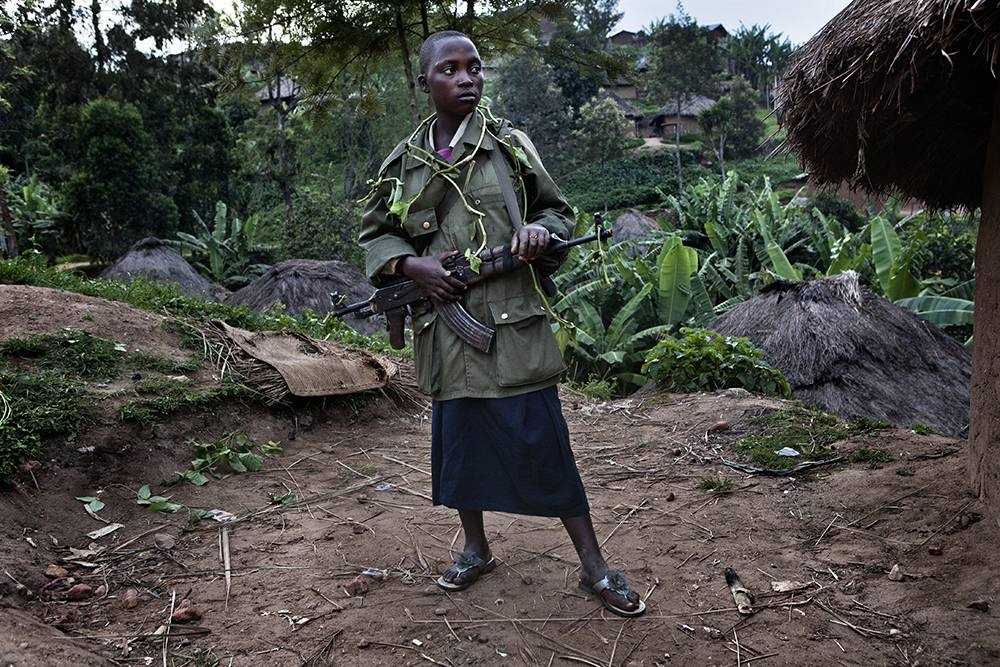
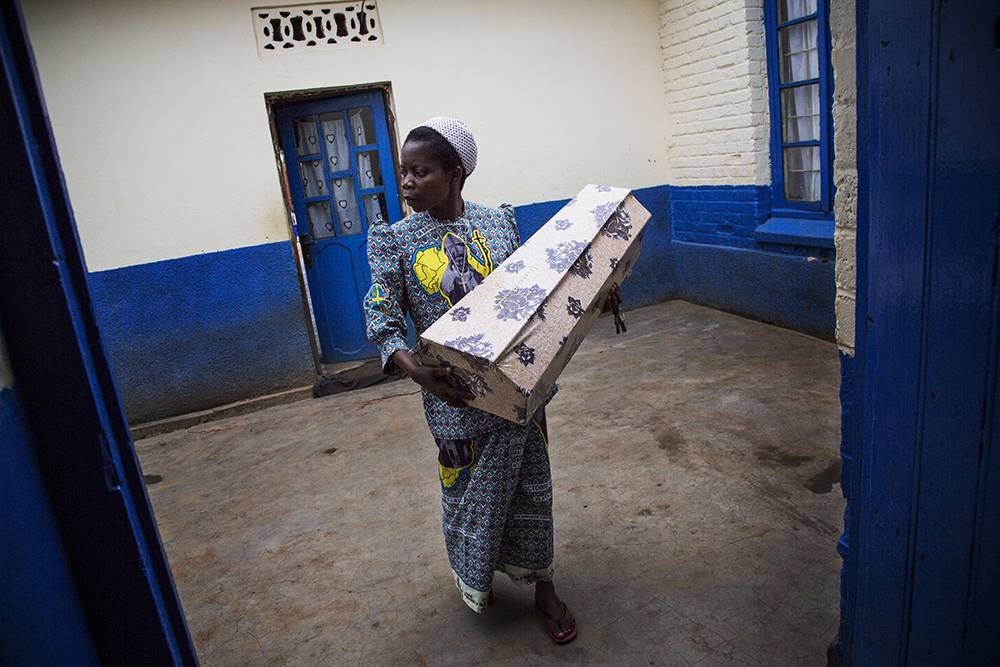
Klicken Sie zur Vollansicht auf ein Bild
Zum Verhängnis wurden dem Land die unermesslichen Bodenschätze: Gold, Diamanten, Mangan, Uran und besonders Coltan. Das Erz und seine metallischen Elemente Niob und Tantal sind für besonders feine Elektronik in Mobiltelefonen, Computern und Digitalkameras unverzichtbar. Doch die Bevölkerung profitiert kaum vom Handel mit diesen Schätzen.
Verschiedene Bevölkerungsgruppen, Rebellenführer, Staat, Militär, internationale Unternehmen versuchen, die Kontrolle hierüber zu sichern.
Um Armut und Hoffnungslosigkeit zu entgehen, schließen sich Kinder und Jugendliche freiwillig oder unter Druck Milizen und Schmugglern an, die die Abbaugebiete kontrollieren.
Marcus Bleasdale ist davon überzeugt: Konsumenten in den Industrieländern haben Einfluss. Sie müssen von den Herstellern ihrer elektronischen Geräte verlangen, dass deren Rohstoffe nicht aus Minen im Kongo stammen, die von Rebellen ausgebeutet werden.
Biografie: Marcus Bleasdale (VII)

Exhibitions
June 1999: War Child the Balkans War. Spitz Gallery, London
September 2000: Sunday Times - Ian Parry Award Exhibition. London
July 2001: Sunday Times, Nikon - Ian Parry Awards Exhibition, London
August 2002: One Hundred Years of Darkness - Spitz Gallery, London
September 2004: Cologne - Photokina Germany
September 2005: The Rape of a Nation - Perpignan - Visa pour l’Image
October 2005: The Rape of a Nation - Human Rights Watch UBS Geneva
December 2005: Moving Walls - OSI New York
June 2006: Human Rights and Street Children - Lincoln Centre, NYC
June 2006: Norwegian Refugee Council - Rådhusplassen – Oslo
October 2006: The Rape of a Nation - Human Rights Watch, Federal Building, Wall Street NYC
February 2007: The Rape of a Nation - Central Library, Chicago USA
December 2007: The Rape of a Nation - Holocaust Museum, Los Angeles
February 2008: Proskauer - Paris - The Rape of a Nation
September 2008: 5,400,000 - Perpignan - Visa pour l’Image
September 2008: 5,400,000 - Korea - Ministry of Foreign Affairs
October 2008: Ministry of Foreign Affairs, France – Declaration of Human Rights
November 2008: Georgia - The August War, New York
May 2009: US Senate - Rape as a War Crime
October 2010: Projection on Facade of Norwegian Parliament Building
January 2011: US House of Representatives - Projection
February 2011: Oslo Nobel Peace Center
Sept 2011: Anastasia Photo NYC
August 2013: Fotografiska Stockholm - Farming out of Poverty
October 2013: The Annenberg Space - LA - Congo Conflict Minerals - National Geographic Magazine
Awards
2000 Sunday Times Nikon Ian Parry Young Photojournalist of the Year
2002 POYi USA Magazine Features 2nd
2003 POYi USA News Picture Story 1st
2004 3PPP First Prize
2004 NPPA Magazine News Story Picture 1st
2004 POYi Magazine News Picture Story 1st
2004 UNICEF Photographer of the Year First Prize
2005 POYi Magazine Features 1st
2005 POYi Magazine News 1st
2005 POYi Magazine Photographer of the Year Award 1st
2005 NPPA Magazine Photographer of the Year Award 2nd
2005 Alexia Foundation First Prize
2005 OSI Distribution Grant
2005 Eugene Smith Award Short-listed
2006 World Press Photo Daily Life Singles
2006 POYi Magazine Photographer of the Year 2nd Place
2006 Overseas Press Club of America Olivier Rebbot Award
2007 Freedom of Expression Foundation Grantee
2008 American Photography Award First Place
2009 POYi First Prize Magazine Features
2009 Days Japan First Prize Readers Award
2010 Anthopographia Award First Prize Human Rights and Photography
2010 Hansel Meith Award First Prize
2010 POYi Book of the Year Award
2011 USA Webby Award First Prize
2012 Nomination Emmy
Books
One Hundred Years of Darkness - Explores the Congo River one hundred years after Joseph Conrad published his book “The Heart of Darkness” using Joseph Conrad’s words and my pictures I illustrate how Congo’s colonial past is still haunting this beautiful yet confused nation.
The Rape of a Nation - A body of work covering natural resource exploitation in the Democratic Republic of Congo. Joseph Conrad once called King Leopold’s actions in the Congo, “The vilest scramble for loot that ever disfigured the history of human conscience.” The work examines the current reason for and costs of, the conflict and presents a visual representation reasons why there are 5.4 million dead in the country in the past ten years. Published 2009
Education
University of Huddersfield. BA (Hons) Business Economics & Finance. 1986-1990
London College of Printing. Postgraduate in Photojournalism. 1999-2000